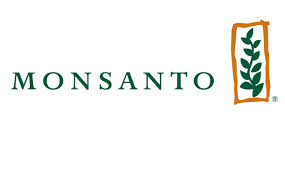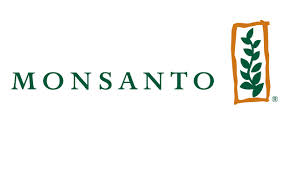
Highlighting the drive for further consolidation in the agro seed sector, news reports that Bayer AG and BASF SE were interested in acquiring the world's largest seed producer saw shares of Monsanto Co rally as much as 12 percent on Thursday.
People familiar with the matter told Reuters on condition of anonymity that valuation concerns have made a deal elusive even as both Bayer and BASF have been exploring a combination with Monsanto for several months.
While financial news website Street Insider reported that BASF was also looking at a Monsanto acquisition, Bloomberg News reported on Thursday that Bayer was exploring a bid for Monsanto.
Monsanto, Bayer and BASF all declined to comment.
Giving it a market capitalization of about $44 billion, Monsanto shares rose as high as $100.85 before easing to $98.64, up 9.2 percent. Bayer shares were down 4.5 percent while BASF shed 1 percent.
The industry has been pressurized to consolidate due to high inventories and low prices for agricultural commodities.
While Dow Chemical Co and DuPont inked a deal to combine into a $130 billion company in December, ChemChina agreed in February to acquire Switzerland's Syngenta AG for $43 billion. Monsanto made a bid for Syngenta last year.
As farmers increasingly look for one-stop shopping for seeds, pesticides and digital services such as satellite-guided spraying and harvesting Monsanto has long argued it needs to buy or team up with a large crop chemicals maker.
Monsanto had approached Bayer to express interest in its crop science unit, including a potential acquisition worth more than $30 billion, Reuters had reported in March citing sources.
With an 18 percent market share, just behind Syngenta, Bayer is the second biggest player in crop chemicals. Syngenta has a 19 percent share. With a 26 percent market share, Monsanto is a leader in seeds. It is followed by DuPont with 21 percent.
The deal would pair the drug maker Bayer's growing seed and crop protection portfolio with Monsanto the world's largest seed company. StreetInsider claimed that chemical company BASF is also considering a takeover of Monsanto.
Monsanto, Bayer AG and BASF declined comment on the reports.
Bayer valued Monsanto at about $40 billion after holding preliminary internal discussions and talks with advisers about a bid, reported Bloomberg citing sources familiar with the matter. Bayer could ultimately decide not to bid for Monsanto or could opt for joint ventures or other transactions including asset sales as no decision had been made yet, eh sources also told Bloomberg.
For a valuation of $14.2 billion, Bayer acquired competitor Merck's consumer business, which includes brands such as Aspirin, Afrin, Claritin and Coppertone. While healthcare sales rose 19% to $26 billion, Bayer's growing agribusiness division saw sales rise 9% to $11.8 billion in 2015. Bayer's 2015 revenue rose 12% to $52.8 billion.
Noting a a 5% decline from the previous year, revenues of $15 billion in its 2015 fiscal year, which ended Aug. 31, 2015 was reported by Monsanto which makes seeds (corn, cotton, fruits and other vegetables) and crop protection chemicals such as RoundUp.
(Source: www.reuters.com & www.usatoday.com)
People familiar with the matter told Reuters on condition of anonymity that valuation concerns have made a deal elusive even as both Bayer and BASF have been exploring a combination with Monsanto for several months.
While financial news website Street Insider reported that BASF was also looking at a Monsanto acquisition, Bloomberg News reported on Thursday that Bayer was exploring a bid for Monsanto.
Monsanto, Bayer and BASF all declined to comment.
Giving it a market capitalization of about $44 billion, Monsanto shares rose as high as $100.85 before easing to $98.64, up 9.2 percent. Bayer shares were down 4.5 percent while BASF shed 1 percent.
The industry has been pressurized to consolidate due to high inventories and low prices for agricultural commodities.
While Dow Chemical Co and DuPont inked a deal to combine into a $130 billion company in December, ChemChina agreed in February to acquire Switzerland's Syngenta AG for $43 billion. Monsanto made a bid for Syngenta last year.
As farmers increasingly look for one-stop shopping for seeds, pesticides and digital services such as satellite-guided spraying and harvesting Monsanto has long argued it needs to buy or team up with a large crop chemicals maker.
Monsanto had approached Bayer to express interest in its crop science unit, including a potential acquisition worth more than $30 billion, Reuters had reported in March citing sources.
With an 18 percent market share, just behind Syngenta, Bayer is the second biggest player in crop chemicals. Syngenta has a 19 percent share. With a 26 percent market share, Monsanto is a leader in seeds. It is followed by DuPont with 21 percent.
The deal would pair the drug maker Bayer's growing seed and crop protection portfolio with Monsanto the world's largest seed company. StreetInsider claimed that chemical company BASF is also considering a takeover of Monsanto.
Monsanto, Bayer AG and BASF declined comment on the reports.
Bayer valued Monsanto at about $40 billion after holding preliminary internal discussions and talks with advisers about a bid, reported Bloomberg citing sources familiar with the matter. Bayer could ultimately decide not to bid for Monsanto or could opt for joint ventures or other transactions including asset sales as no decision had been made yet, eh sources also told Bloomberg.
For a valuation of $14.2 billion, Bayer acquired competitor Merck's consumer business, which includes brands such as Aspirin, Afrin, Claritin and Coppertone. While healthcare sales rose 19% to $26 billion, Bayer's growing agribusiness division saw sales rise 9% to $11.8 billion in 2015. Bayer's 2015 revenue rose 12% to $52.8 billion.
Noting a a 5% decline from the previous year, revenues of $15 billion in its 2015 fiscal year, which ended Aug. 31, 2015 was reported by Monsanto which makes seeds (corn, cotton, fruits and other vegetables) and crop protection chemicals such as RoundUp.
(Source: www.reuters.com & www.usatoday.com)





